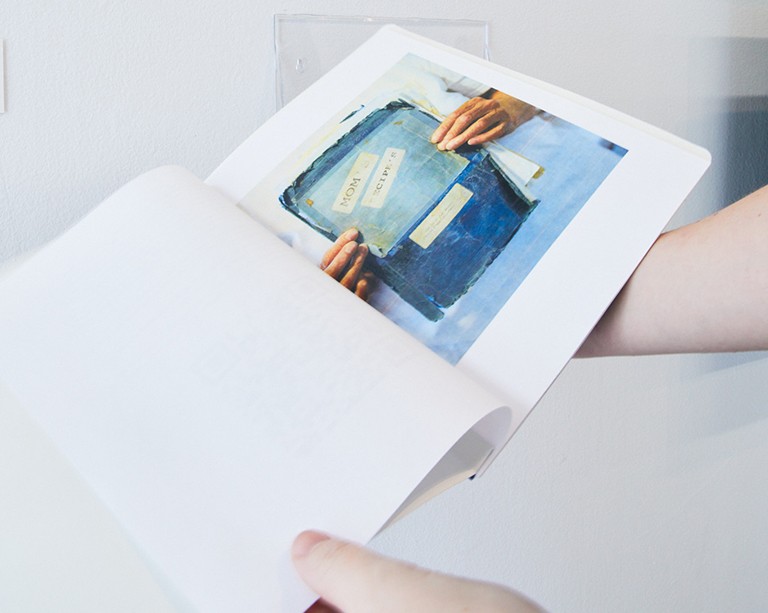Peter Behrens is Concordia’s new Richler writer-in-residence
 Peter Behrens | Photo (left) by Winky Lewis
Peter Behrens | Photo (left) by Winky Lewis
It’s a homecoming for author Peter Behrens, who arrived in Montreal recently to settle into his role as the university’s latest Richler writer-in-residence.
Behrens was born and grew up in Montreal. From 1971 to 1976 he attended Sir George Williams University, one of the two founding institutions that became Concordia. Returning, he says, stirs up a curious sense of the familiar and utterly unfamiliar.
“Concordia is bigger and more exciting than I remember. Students used to be from around the city, now it feels like they’re from around the world. Montreal has always been one of those cities that has a powerful — sometimes blinding! — sense of itself. It can feel very provincial and very cosmopolitan at the same time.”
As a writer coming of age in Montreal Behrens felt a connection to Richler and his work.
“The Montreal world I grew up in — second- and third-generation Canadian Irish mostly, with some Scottish and French Canadian relatives-by-marriage, and an Anglo-Irish-German father who seemed to be from just about everywhere — was not Richler’s world. Mine was on the other side of The Mountain. But it was an unwritten world, mostly — like St. Urbain Street was until Mordecai came along.”
Just as Richler left the city and his Mile-End roots to spend years in London, Behrens also felt a need to leave the city. “Mordecai had to get out of Dodge,” Behrens says. “To get perspective on the world, and the street he grew up on. Same for me. Different street. Same urge, maybe.”
Now living in Maine and Texas, Behrens was a 2015-16 fellow at Harvard University’s Radcliffe Institute for Advanced Study. He teaches fiction and television writing at Colorado College and will teach at the Banff Centre in 2018.
A gifted storyteller
Behrens’ latest novel, Carry Me, is shortlisted for the 2017 Vine Awards for Canadian Jewish Literature. The winners will be announced in Toronto on October 3.
In nominating Carry Me, the jury said that "Behrens is a master, at home in the broad sweep of history and the intimate detail of a character’s experience. This is a novel that could be, should be, read in a hundred years."
Carry Me was also a finalist for the 2016 National (US) Jewish Book Award in Fiction. The novel is published in French as Les Insouciants by Editions XYZ (Montreal) and Editions Philippe-Rey (Paris).
Behrens’ debut novel, The Law of Dreams, a story of the Irish Famine of the 1840s and Famine-era emigration to Montreal, won the 2006 Governor General’s Award for English fiction and is published in nine languages.
The Irish Sunday Independent called it “one of those rare books that come along from time to time that make you feel you are in the presence of greatness: a gifted storyteller with a truly compelling story to tell.”
His second novel, The O’Briens, about descendants of Famine Irish getting rich in 20th-century North America was declared “a major accomplishment” by The New York Times Book Review in 2011.
Behrens’ work has been included in the Best Canadian Stories and Best Canadian Essays anthologies. He is an occasional contributor of Op-Ed pieces to The New York Times, The Wall Street Journal and US National Public Radio.
Following the 1987 publication of his first collection of short stories, Night Driving, Behrens began working as a professional screenwriter in Los Angeles, adapting short stories and novels, rewriting screenplays, and creating his own.
He wrote the screenplay for his original story “Cadillac Girls.” Released in 1993, the movie version features Canadian actresses Jennifer Dale and Mia Kirshner as mother and teenage daughter coming to terms with themselves and each other.
Kate Sterns is associate professor and coordinator of the Creative Writing Program in the Department of English. She says Behrens’ literary range was a huge part of his appeal as Richler writer-in-residence.
“Peter Behrens’ expertise in a variety of literary forms — novels, screenwriting, short stories and essays — parallels Mordecai Richler’s own varied literary career,” says Sterns.
“We are particularly excited that Behrens is teaching an advanced undergraduate course in scriptwriting and will be giving a master class to students in the Faculty of Fine Arts, our co-sponsors for this year’s residency.”
Behrens recalls his early contact with Richler’s writing.
“Just after I started at Concordia, I read The Apprenticeship of Duddy Kravitz. In my second year, St. Urbain’s Horseman was published. I read and reviewed it for the university newspaper of that time, The Georgian. It was a good paper. My review was positive but not insightful. I reread it recently — for the first time in 40 years. What a pompous fellow!”
The reading room revisited
Richler also studied at Sir George Williams University, between 1949 and 1951. He later returned as writer-in-residence in 1968 and 1969, a stint that inspired his family to create a residency in his name in 2013.
The Richler family also donated a number of the author’s significant possessions, including his writing desk, the manual typewriter that produced such classic novels as The Apprenticeship of Duddy Kravitz and Barney’s Version and a varied collection of books, personal effects and memorabilia.
The Mordecai Richler Reading Room will be at the centre of a new research project funded by the Social Sciences and Humanities Research Council (SSHRC). Led by Jason Camlot, associate dean in the Faculty of Arts and Science and associate professor of English, a cross-faculty team will sort, catalogue and produce new contexts for the use of items in the reading room in teaching and research.
“We’re aiming to explore new methodologies for the use of an author’s library as a platform for interdisciplinary research, pedagogy and archival practice as we create a digital repository of the material that inspired Richler’s writing,” Camlot explains.
“Developing novel ways of engaging with an artist’s collection of this kind will advance the fields of Canadian literature, but also library and archival studies, and visual and oral storytelling.”
‘I want to absorb that Richler vibe’
While Richler’s novels feature fictional characters based on people he knew, Behrens’ writing draws on his own family and its history through England, Ireland, Germany and Canada.
The writer-in-residence posting is an opportunity for Behrens to rediscover his native home and polish what he describes as his “disgracefully rusty” French.
“I can’t keep claiming to be a Montréalais — something I’m very proud of — without tuning up my French,” he says.
“And I hope to spend some time in Mordecai’s room working on a novel-in-progress. I need to absorb some of that Richler vibe — that professionalism, that dedication, even that Montréalicité. Because my book is set here, mostly.”
Behrens is the third writer to take up the post, following the inaugural residency of Ann-Marie MacDonald in 2015 and last year’s stint by Montreal-based author and illustrator Matthew Forsythe.
As with previous Richler writers-in residence, Behrens will also be producing digital dispatches for The Walrus. Next spring, he’ll discuss his work during a free, public event at Concordia.
Visit Concordia’s Mordecai Richler Reading Room today.


